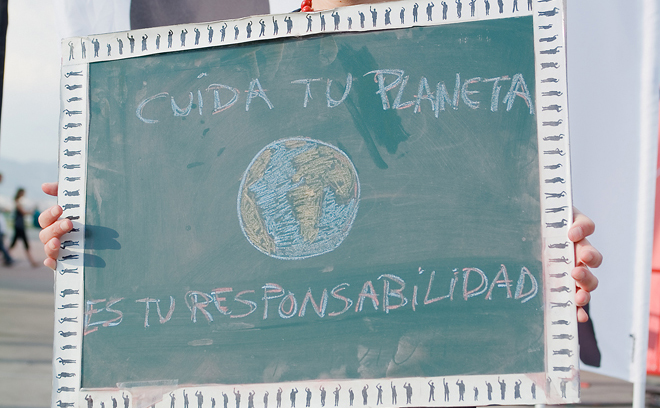Brussels, 18 July 2008 – Today, European civil society organisations and social movement members of the Seattle to Brussels Network have expressed deep concern about the EU’s position in the run-up to the upcoming WTO Mini-Ministerial meeting in Geneva.
Ministers from dozens of countries, including the US, EU, Brazil, India, Indonesia, Philippines, South Africa, Kenya and Egypt, will meet in Geneva from 21 July 2008 to push through the conclusion of the WTO’s Doha Round. After years of negotiations, failed Ministerials, and re-starts, this is their ‘last chance’ before President Bush leaves office. The Ministers are seeking to conclude this faltering round while pushing aside key global priorities like the food crisis, fuel prices, global warming, global poverty and debt.
If concluded, this falsely labelled ‘Development Round’ will benefit large corporations – but will have profoundly negative impacts on workers, farmers, women, consumers, and the environment.
Job loss and de-industrialization would increase and development space would be further hampered. Rich countries are demanding that developing countries provide ‘new market access’, meaning slashing protective tariffs on manufactured goods and natural resources.
Farmers’ livelihoods, food security, and rural development would come under even greater pressure. The United States and Europe continue to subsidize their agribusiness exporters, while at the same time fighting against key protections for millions of farmers in developing countries. This is outrageous in the face of a global food crisis.
Privatisation and deregulation of services would be exacerbated, including in key sectors such as finance and energy, thereby reducing access to and democratic control of these services. However recent instability in global markets demonstrates the need for increased intervention in and oversight of global financial and other markets, not more deregulation.
Global efforts to tackle climate change may be curtailed by the strengthening of WTO rules, which promote the expansion of world trade as an end in itself, without looking at possible adverse impacts on the world’s climate, biodiversity and natural resources.
The poorest countries would be the biggest losers. Economic projections of a potential Doha deal, by several think tanks and even by the World Bank, show that the costs of lost jobs, reduced policy space and lost tariff revenues far outweigh the supposed “benefits” of this so-called ‘Development’ Round.
For all these reasons, NGOs, movements and organisations members of the Seattle to Brussels Network [1] are deeply concerned with the upcoming mini-ministerial meeting in Geneva.
The EU, through the voice of its European Commissioner Peter Mandelson, is still making unfair and unsustainable requests to emerging and developing countries. On the other hand, beyond all the talk on ‘Europe that protects’ propagated by the current President of the Council Mr Sarkozy, the EU is still moving forward with an unsustainable agricultural system, which mainly serves the interests of the European agribusiness industry, without consideration for the livelihoods and the food sovereignty of European or Southern small-scale farmers. In the EU’s opinion, the few concessions accepted by the EU in the agricultural negotiations should be compensated by tariffs cuts in services and industrial goods in emerging countries. But these proposals will not create more decent jobs and sustainable development neither in Europe nor in the Global South but rather hurt the most fragile parts of the populations.
A deeper deregulation of food production and trade are not the answer to the current food, environmental and energy crisis; on the contrary they will worsen inequalities both at the global and the local levels.
The conclusion of the Doha Round would reinforce and legitimate approaches and policies that currently show their inefficiency and their destructive nature for farmers, workers, consumers, environment both in Europe and in the Global South.
In the perspective of the extraordinary GAERC foreseen on the 18th of July and during the following week in Geneva, we urge the European Commission and the European member states to accept the failure of the old ‘free trade’ and competitiveness mantra and start shaping new trade policies which support food sovereignty, sustainable societies and a fair share and access to global commons.
***
NOTES:
[1] The Seattle to Brussels (S2B) Network (http://www.s2bnetwork.org) is a pan-European network of more than 70 organisations from 16 countries campaigning to promote a sustainable, socially and democratically accountable system of trade. The S2B Network is part of the global coalition ‘Our World is Not for Sale’ (http://www.ourworldisnotforsale.org)








